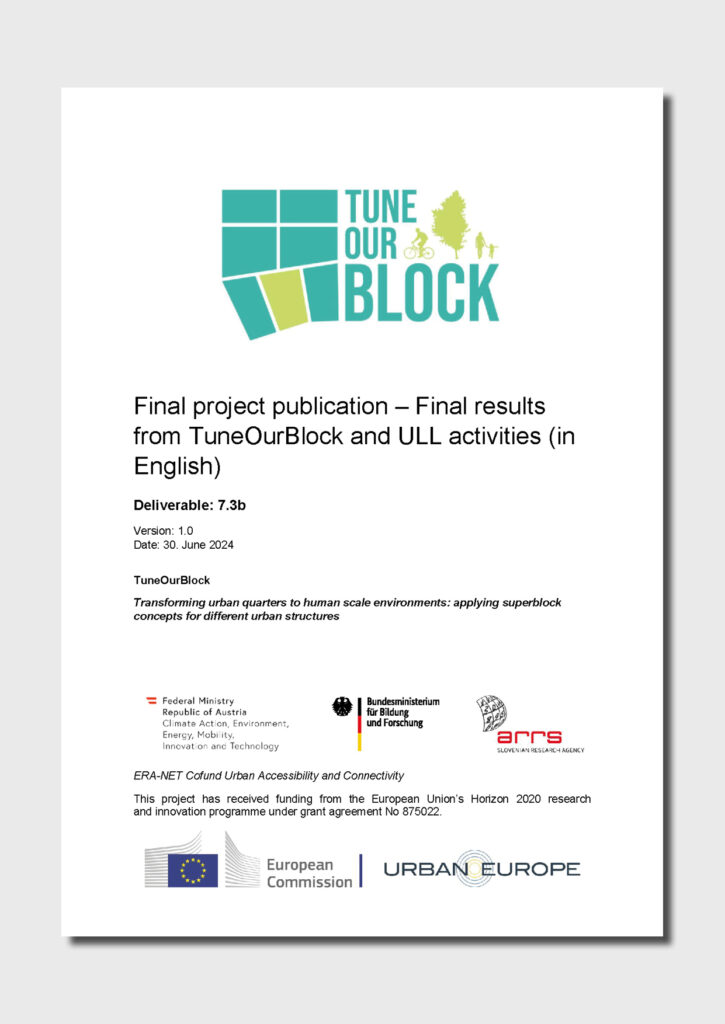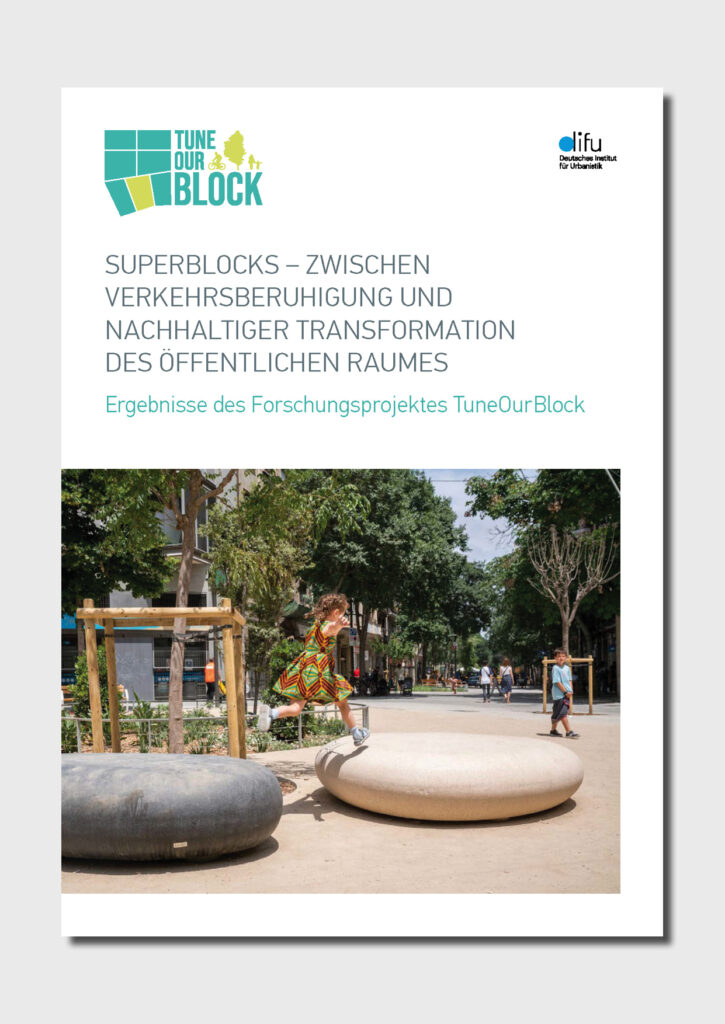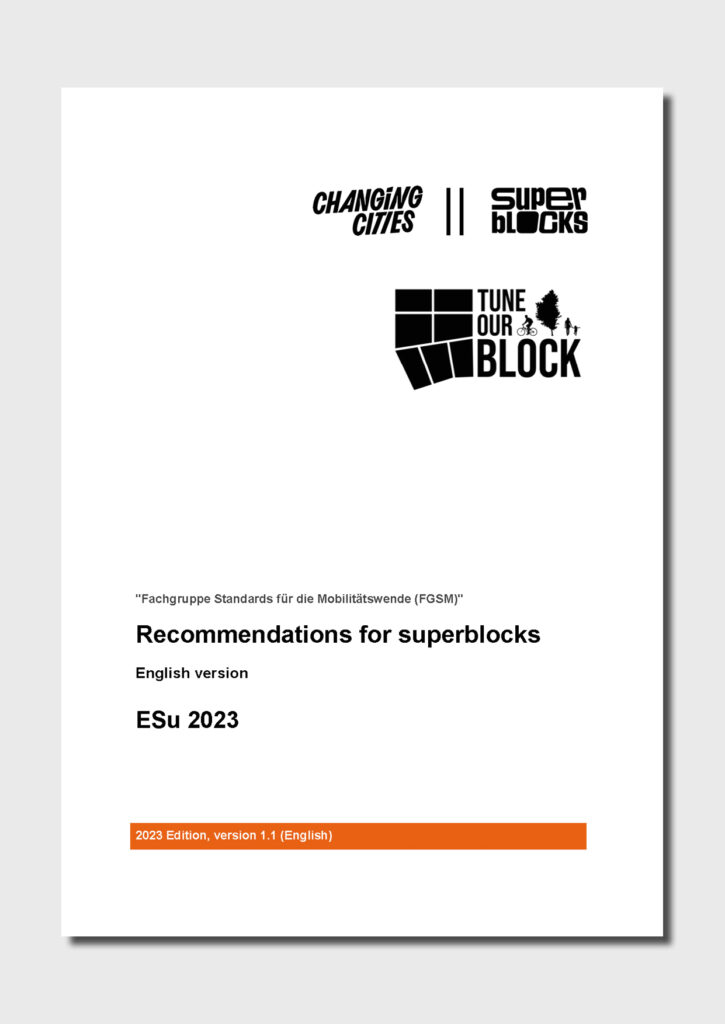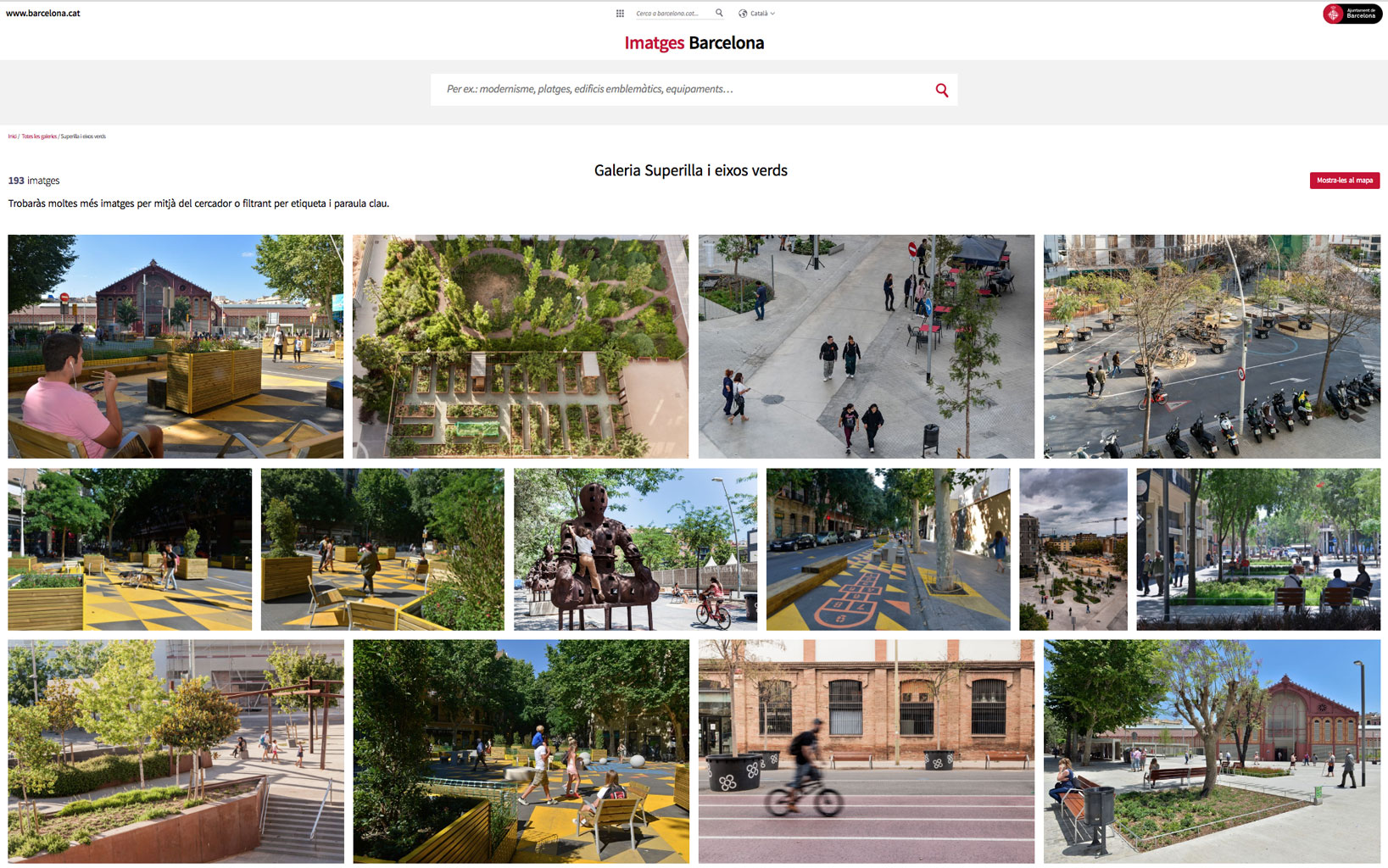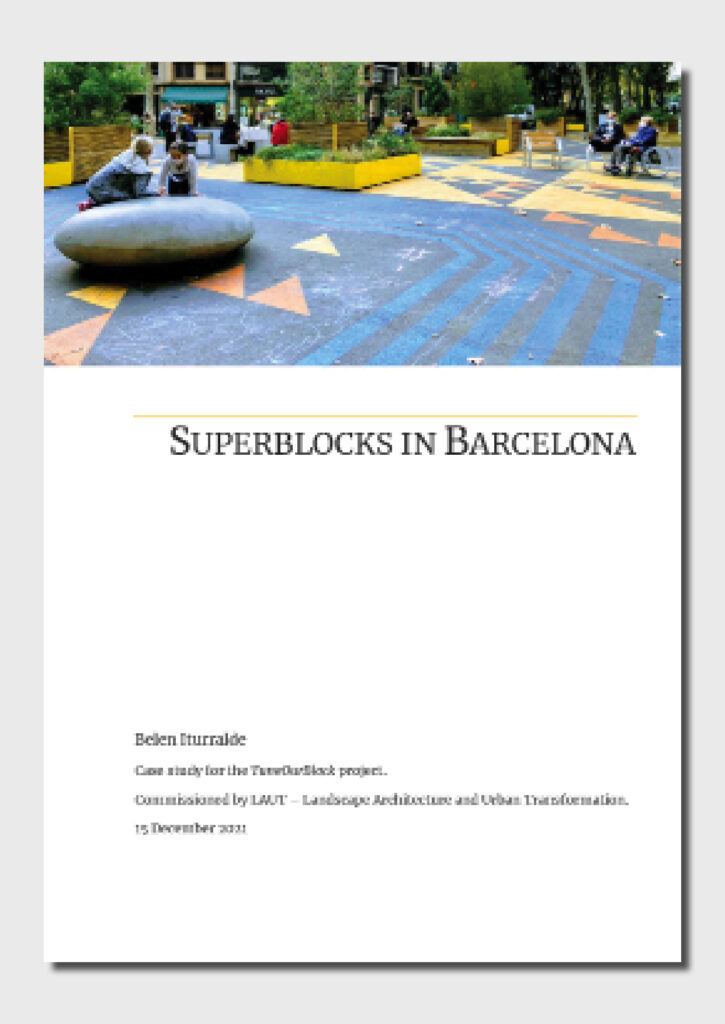Materials for Mainstreaming Superblocks
The TuneOurBlock project created various results and resources for mainstreaming Superblocks. You can browse the materials linked below or jump directly to:
TuneOurBlock Project Reports,
Toolkits and services to lobby for and to implement Superblocks,
Visuals for communicating Superblocks,
TuneOurBlock deliverables and case studies,
Academic Publications, and
Recordings of webinars and online lectures.
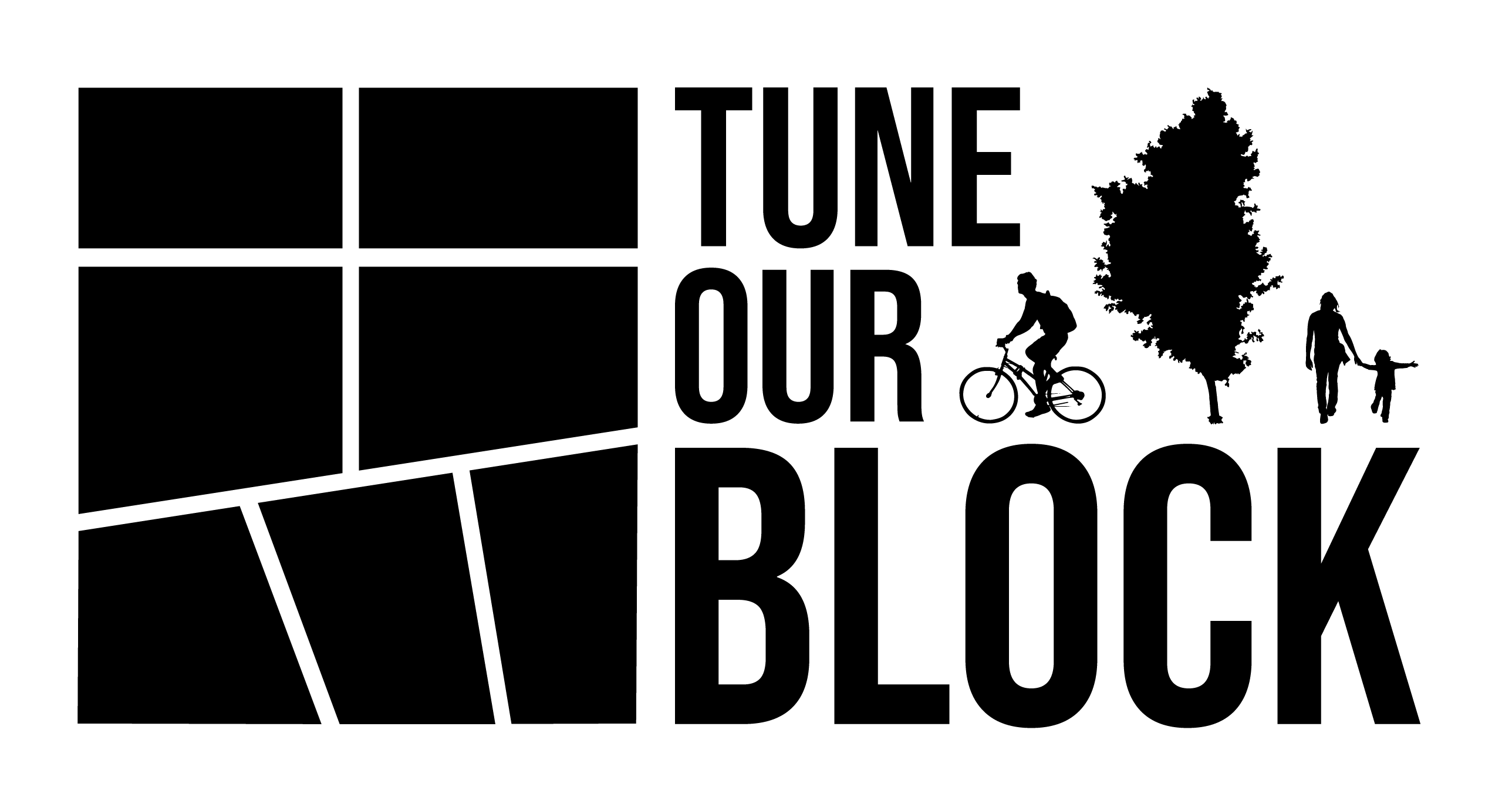

TuneOurBlock project report
Toolkits and services to lobby for and to implement Superblocks
TuneOurBlock Superblock Guidance Document
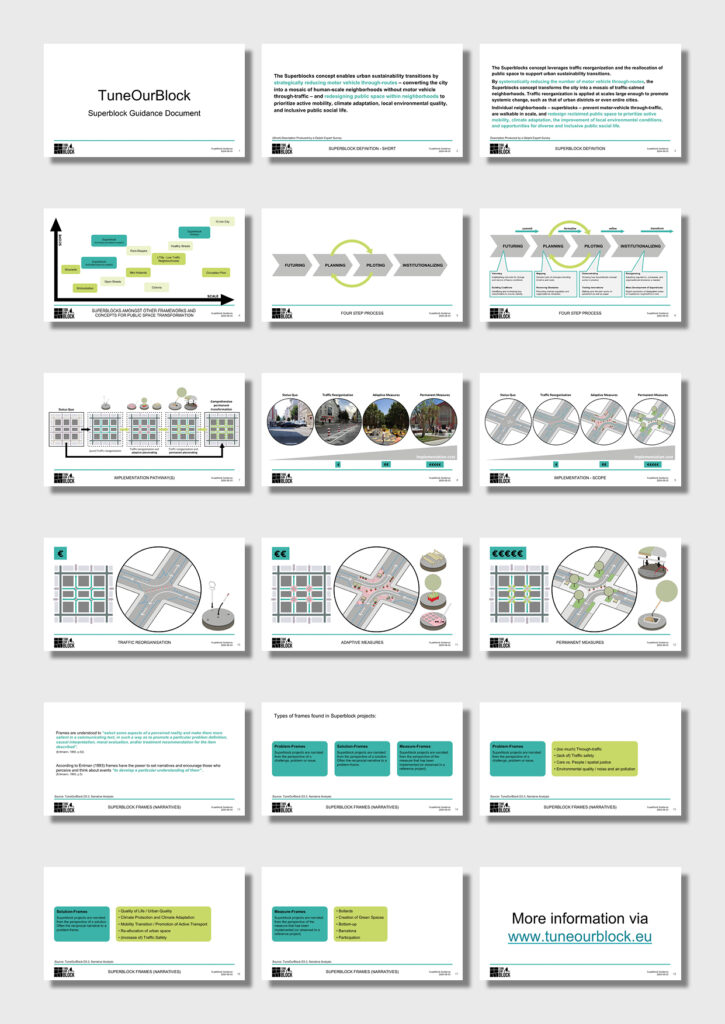
“The TuneOurBlock consortium set out to formulate transferable materials that can be employed by actors in administration, politics and civil society.
The aim of the Superblock Guidance Document is to better understanding the concepts potentials and its delineation towards other planning methods that are often mixed with it or discussed in tandem.”
Download the Superblock Guidance Slideset as .pdf Format (new tab)
How-to Superblocks
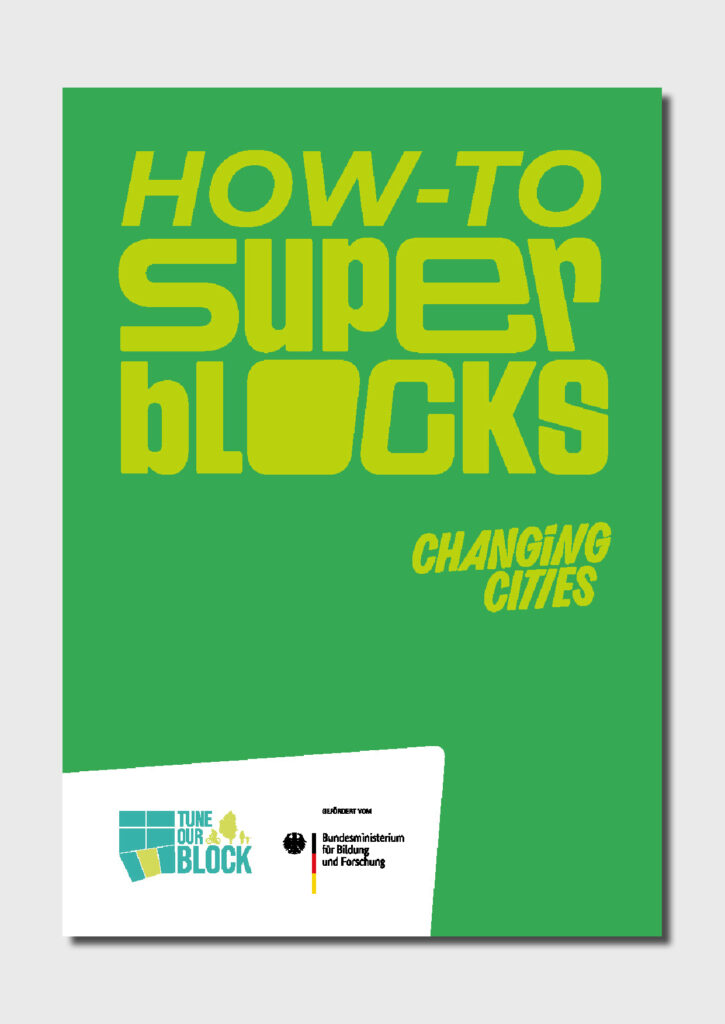
“Your neighbourhood is your home. This is where your children have space to play, where you and your friends meet for a neighbourly coffee shaded by trees. (…)
Sound too good to be true?
For most of us, the reality is quite different: through- traffic hurtles along the, never-ending tarmac. Exhaust fumes pollute the air we breathe and constant noise pollution makes us ill. Tarmac, walls, and cars absorb heat in the increasingly hot summers and rob us of sleep. People hardly ever meet because there is no room to linger on the street.
We can change that with superblocks. This how-to guide is for anyone who wants to take the future of their city into their own hands.“
The Citizen Engagement Trolley
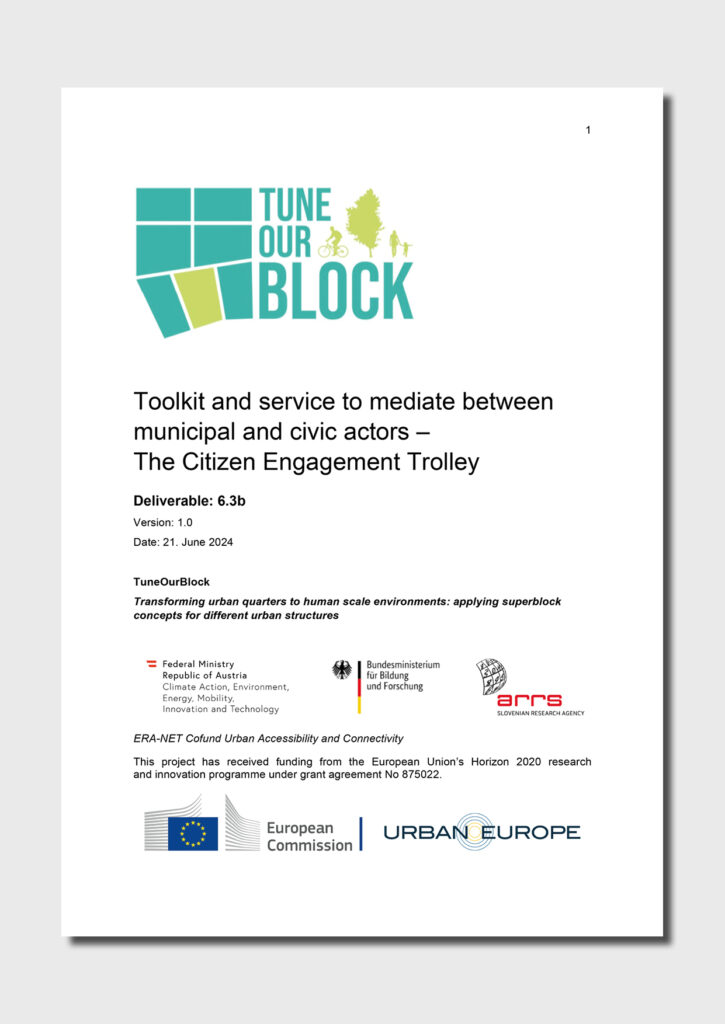
“The Citizen Engagement Trolley (CET) was conceptualized as a tool for bringing “dry” planning issues out on the street and to engage citizens with topics that are usually dealt with inside the office on expert tables.
The CET should be movable by walking or cycling, should fit flexibly into various urban spaces, and invite participation by creating a visually attractive infrastructure to conduct information, consultation and co-creation events in public space.
The CET was conceptualized as a tool to be used by a mediating agency that negotiates between municipal and civic stakeholders and helps to bring about Superblock projects by aligning strategic planning goals while channeling civic engagement into feasible pathways.”
Download the description of the Citizen Engagement Trolley (.pdf in new tab)
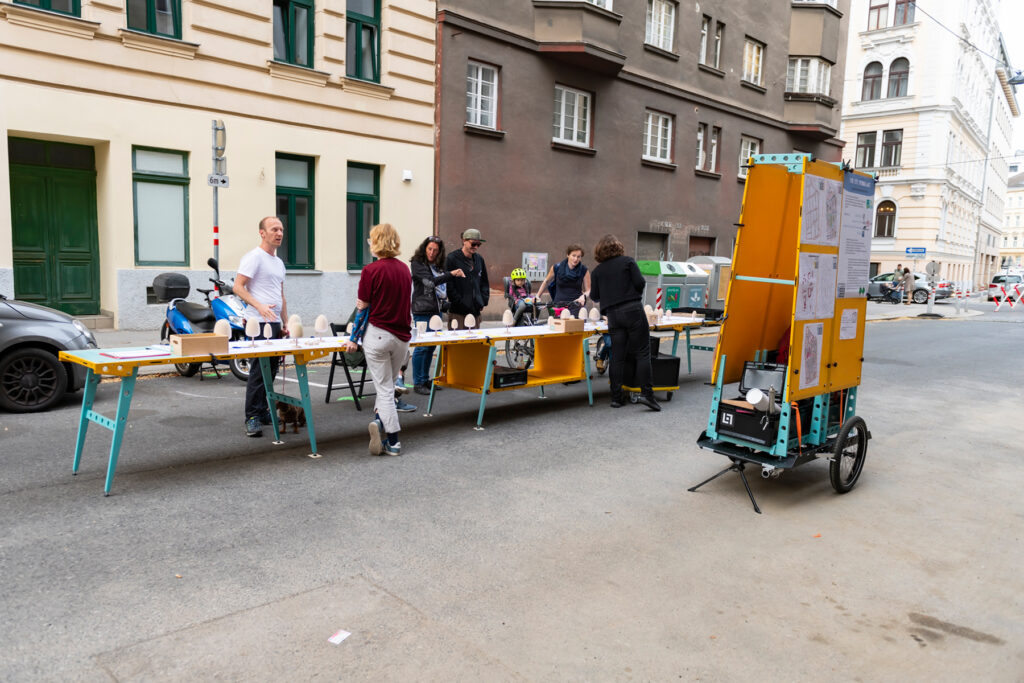
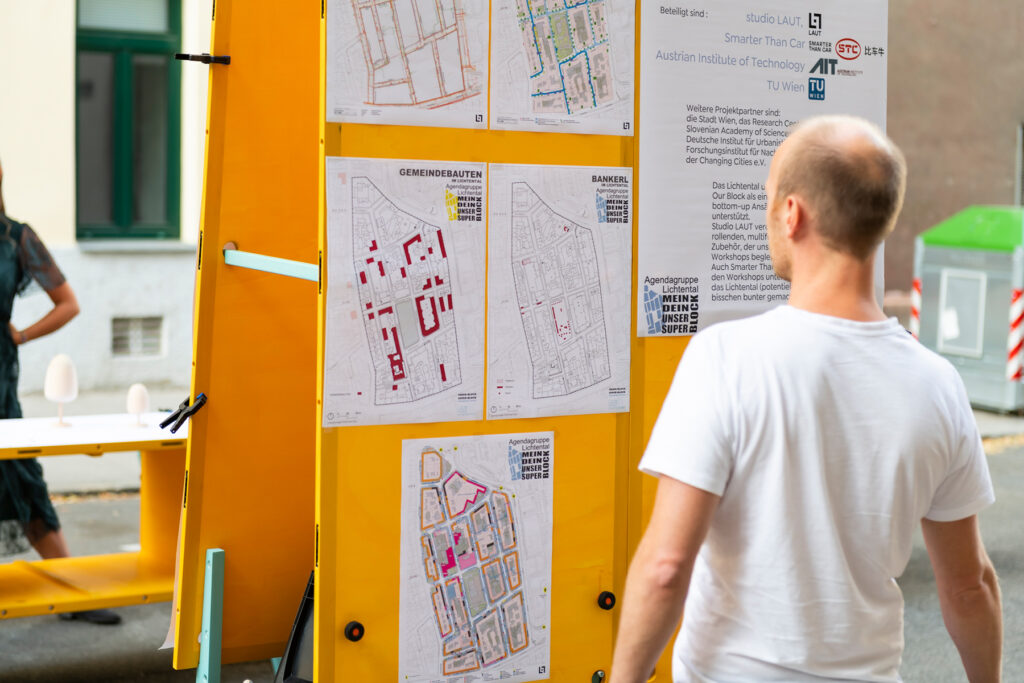
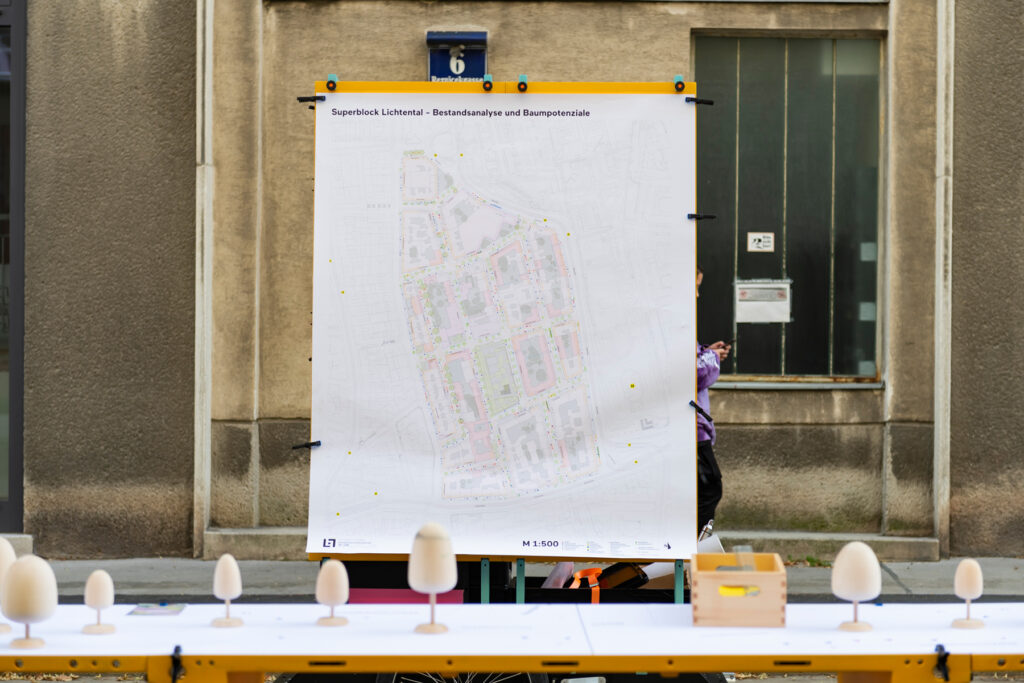
Find the images of the Citizen Engagement Trolley via the TuneOurBlock Image Database.
Visuals for Communicating Superblocks
When lobbying for Superblocks, we often lack the right visual material to communicate the ideas behind the Superblock concept. Several image databases are provided below so that you can show others what Superblocks are all about.
Please note that images may be subject to copyright! The relevant information about how to use images can be found below.

TOB Creative Commons Image Database
The TuneOurBlock project has curated a collection of images that represent Superblock activities in various European cities.
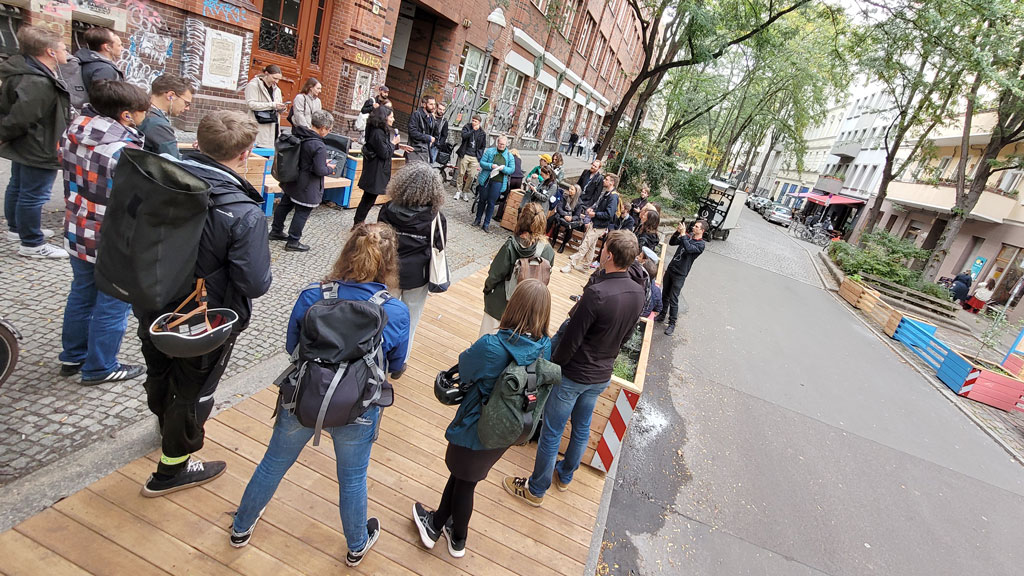
Superilla Barcelona Images
The City of Barcelona has an extensive image database – Imatges Barcelona – that can be searched for the keywords “superilles” or “superilla” to find great images of Barcelona’s Superilla project. You can also browse the image collection on “Superilles and Green Axis“.
TuneOurBlock deliverables and case studies
Selected Project Deliverables and Case Studies from the TuneOurBlock project. For further inquiries, you can contact the project consortium via email.
Literature review on Superblocks’ effects on the urban realm
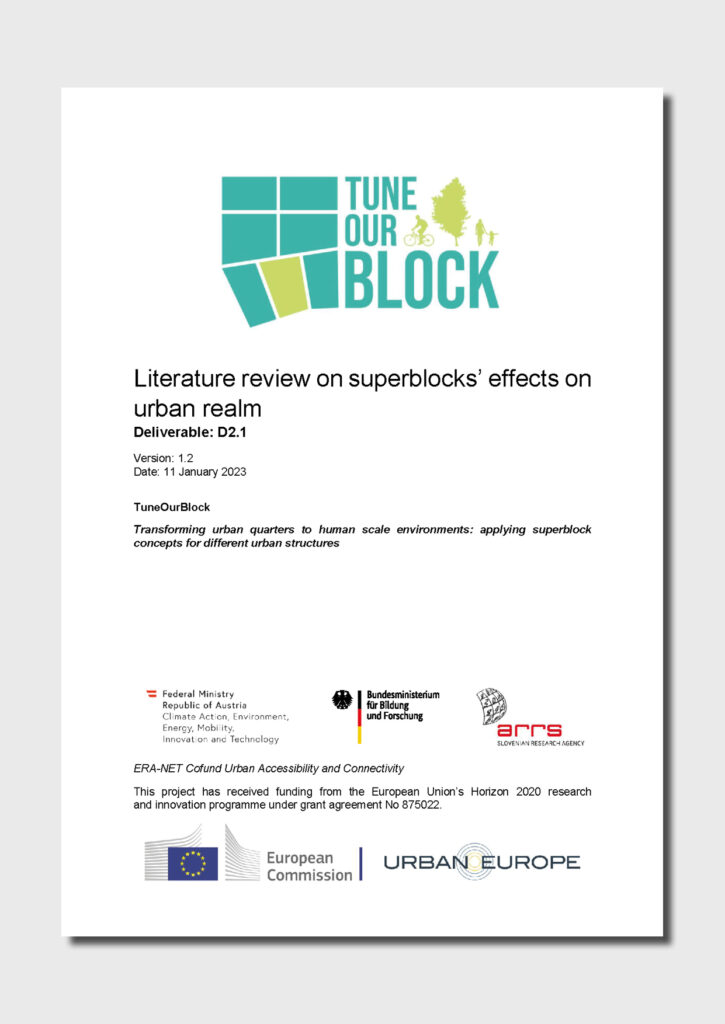
This deliverable is one of the initial steps towards achieving the TuneOurBlock project objectives. The aim of the document is to provide a foundation for succeeding tasks in the TuneOurBlock project by performing a literature review on Superblocks and similar urban transformational interventions to evaluate their effects on the urban realm.
A conceptual model providing Superblock’s definition, selection criteria, indicators and typologies
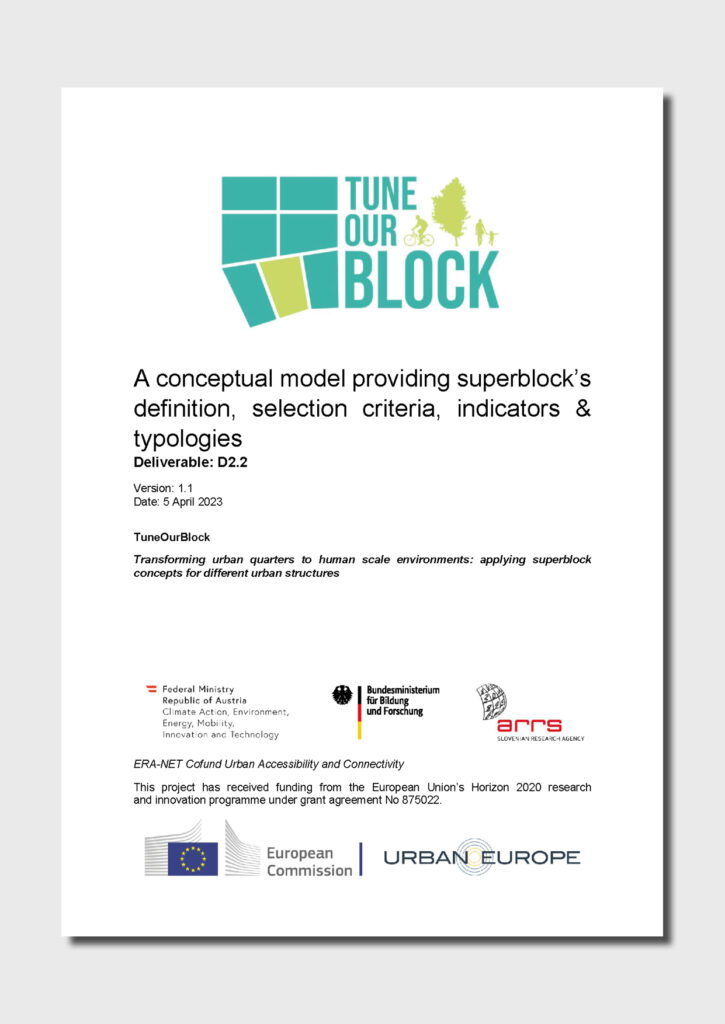
This deliverable establishes five key points:
- a definition of Superblocks including essential components, etc.
- a metric to measure Superblocks
- the understanding, that the Superblock concept is flexible and adaptable and appropriate for built environments different than that found in Barcelona’s Eixample (indicators, etc.)
- the notion, that the Superblock concept should be understood as a replacement regime for automobility, not as isolated traffic calming and public space improvement (socio-technical transitions, MLP)
- the idea, that the widescale implementation of Superblocks is (in theory) capable of triggering socio-technical transition (regime destabilization and replacement)
Short Report on Implementation Pathways
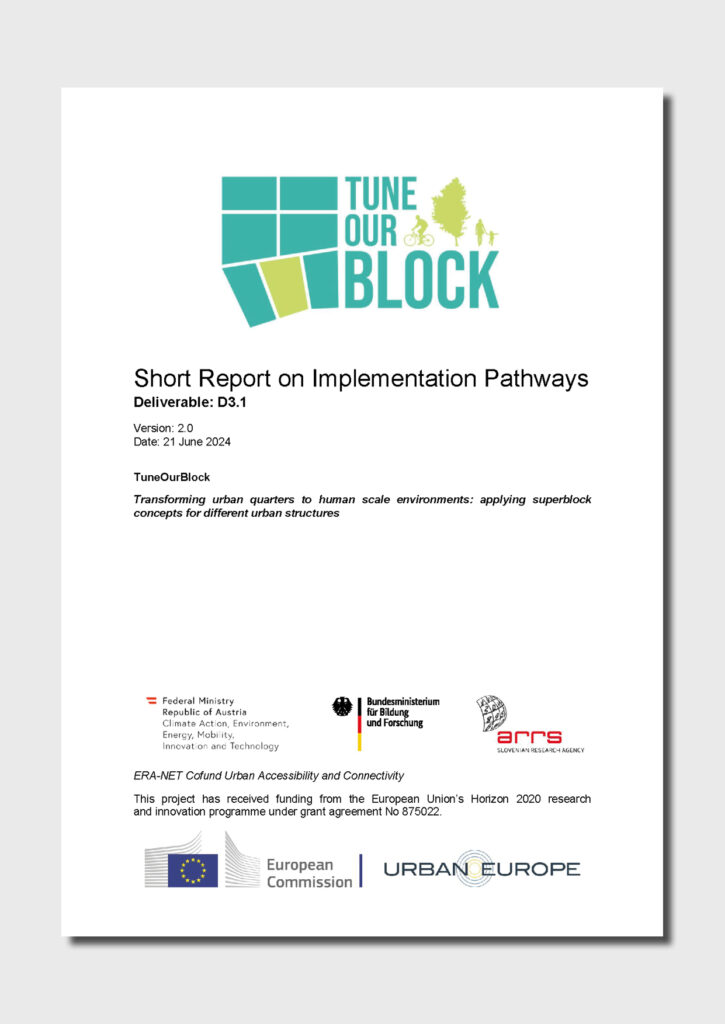
Our ambitions in this document are:
- to hypothesize an implementation process ideally suited to the Superblocks concept;
- to theorize the various alternative pathways that implementation might follow and the components of implementation strategies and tactics;
- to identify the contextual determinants that make each implementation process unique;
- and to explain why the real-world implementation of Superblocks is neither simple nor straightforward.
Summary of the involvement strategy analysis
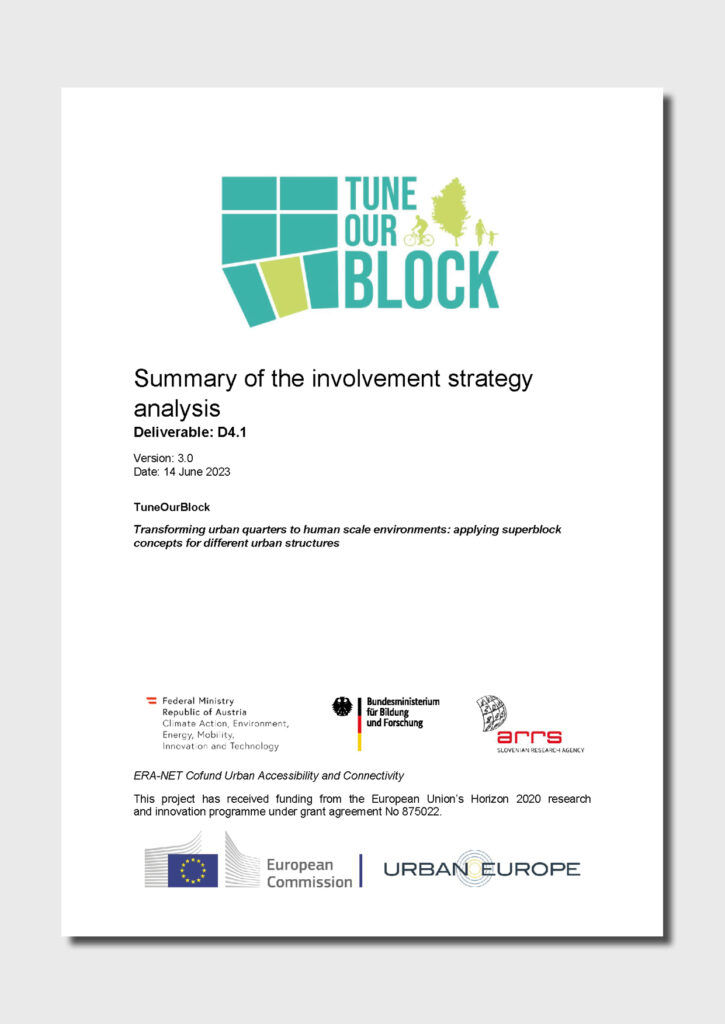
This report provides an analysis of the strategies for stakeholder engagement in a Superblock planning process. In this Deliverable, we focus on a detailed stakeholder analysis and explain what their needs are and how they need to be addressed. A focus is hereby on the different strategies needed to address different citizen concerns and suggestions.
Academic Publications
The following publications are of relevance for understanding, benchmarking and arguing Superblock initiatives and projects. They have been written within the TuneOurBlock project or have co-authors that are part of the TuneOurBlock consortium.
Superblocks between theory and practice: Insights from e-Delphi process and urban living labs in Vienna and Berlin (2025)
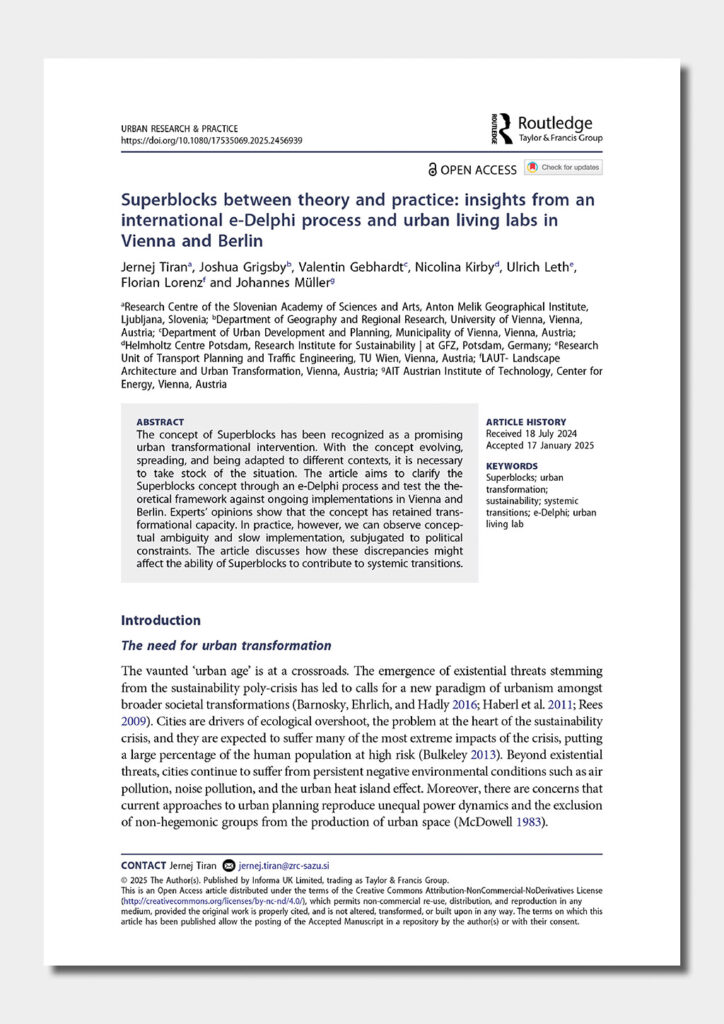
“The article aims to clarify the Superblocks concept through an e-Delphi process and test the theoretical framework against ongoing implementations in Vienna and Berlin. Experts’ opinions show that the concept has retained transformational capacity. In practice, however, we can observe conceptual ambiguity and slow implementation, subjugated to political constraints. The article discusses how these discrepancies might affect the ability of Superblocks to contribute to systemic transitions. “
Article by members of the TuneOurBlock consortium featuring insights and key results from the project.
Open access paper in the journal Urban Research & Practice, 1–23., 2025
The Superblock model: A review of an innovative urban model for sustainability, liveability, health and well-being (2024)
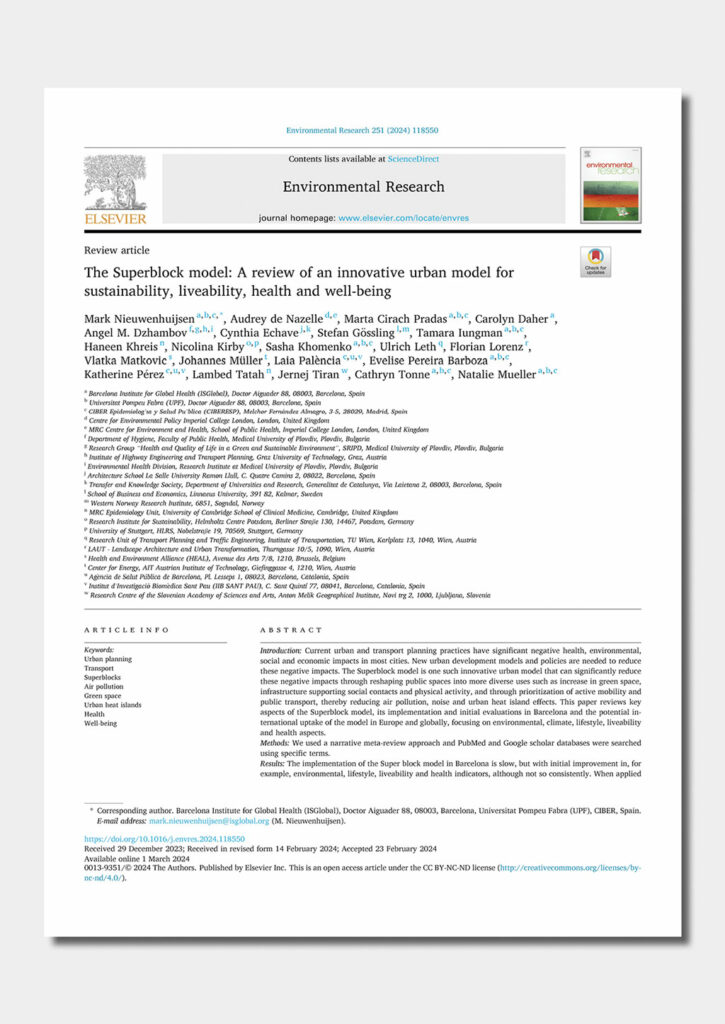
“This paper reviews key aspects of the Superblock model, its implementation and initial evaluations in Barcelona and the potential international uptake of the model in Europe and globally, focusing on environmental, climate, lifestyle, liveability and health aspects.”
Review article by Nieuwenhuijsen et. al. with TuneOurBlock consortium members as contributing authors.
Open access paper in the journal Environmental Research, Volume 251, Part 1, 15 June 2024, 118550
How experiments with superblocks in Vienna shape climate and health outcomes and interact with the urban planning regime (2024)
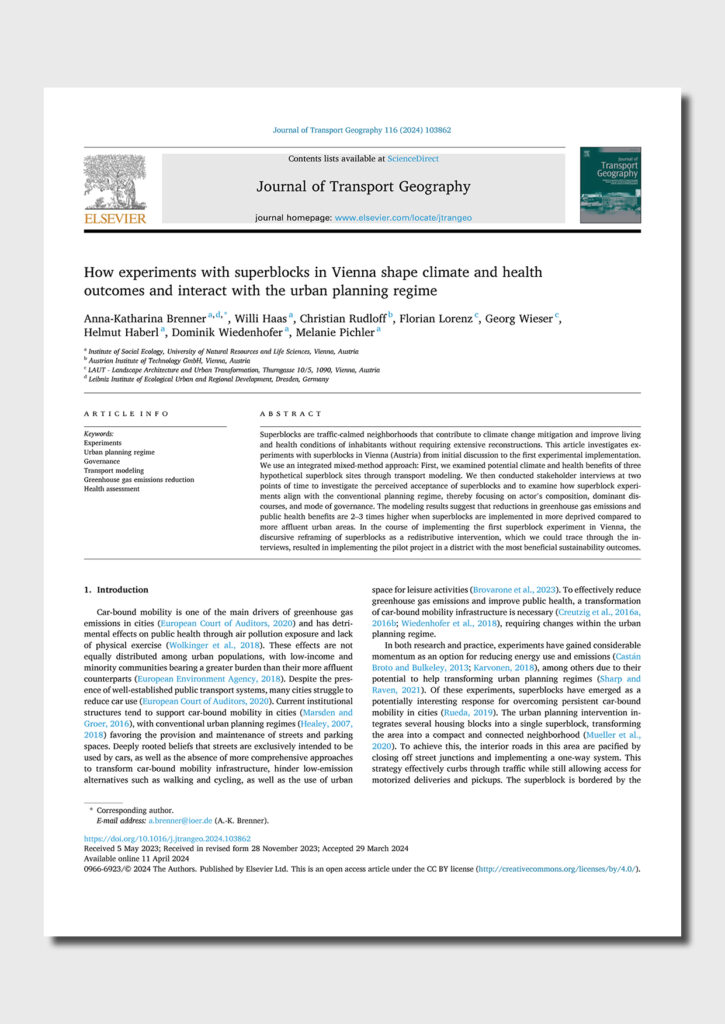
“This article investigates experiments with superblocks in Vienna (Austria) from initial discussion to the first experimental implementation.”
Research article by Brenner et. al. with TuneOurBlock consortium members as contributing authors.
Open access paper in the Journal of Transport Geography, Volume 116, April 2024, 103862
Community resilience through bottom–up participation: when civil society drives urban transformation processes (2024)
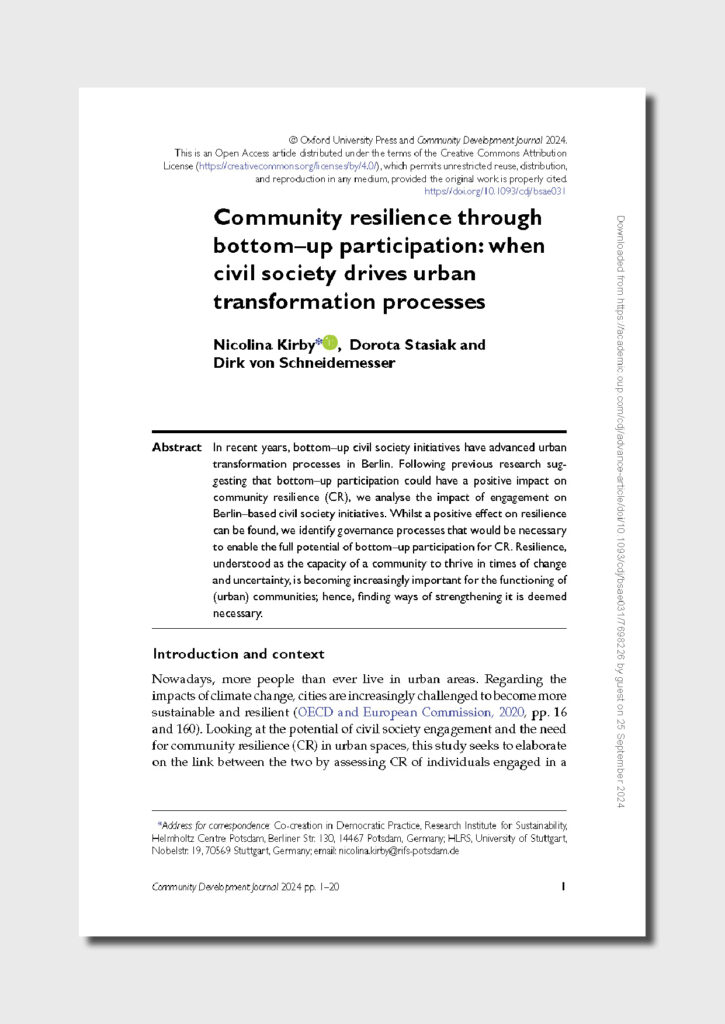
“In recent years, bottom–up civil society initiatives have advanced urban transformation processes in Berlin. Following previous research suggesting that bottom–up participation could have a positive impact on community resilience (CR), we analyse the impact of engagement on Berlin–based civil society initiatives. Whilst a positive effect on resilience can be found, we identify governance processes that would be necessary to enable the full potential of bottom–up participation for CR.”
Research article by Kirby et. al. investigating Berlin’s Kiezblock initiatives under the aspect of Community Resilience.
Open access paper in the Community Development Journal, 2024
Simulation of a full-scale implementation of Superblocks in Vienna (2023)
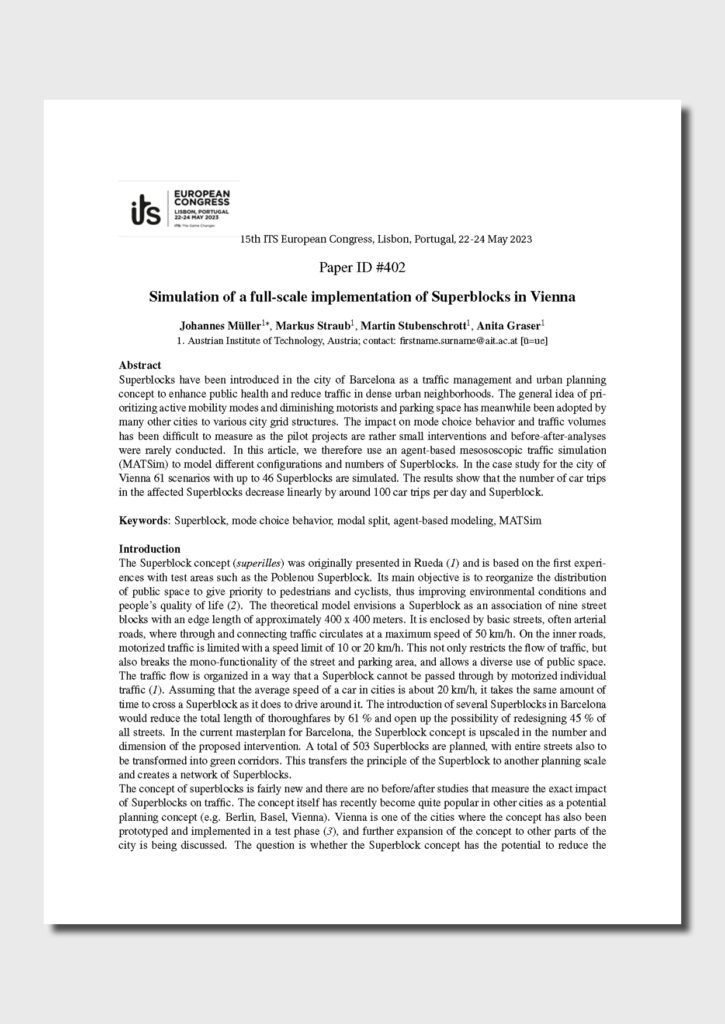
“In this article, we (…) use an agent-based mesososcopic traffic simulation (MATSim) to model different configurations and numbers of Superblocks. In the case study for the city of Vienna 61 scenarios with up to 46 Superblocks are simulated. The results show that the number of car trips in the affected Superblocks decrease linearly by around 100 car trips per day and Superblock.”
Conference paper authored by Müller et. al. from TuneOurBlock consortium member AIT Austrian Institute of Technology.
Conference paper presented at the 15th ITS European Congress, Lisbon, Portugal, 22-24May 2023
